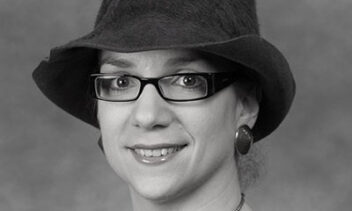What place does mysticism have in a conversation about social justice? For many people – and many times – mysticism was identified with the most antiquated, change-averse parts of religion, and social modernizers or reformers in Europe were often concomitantly dedicated to reforming the socio-economic lives of Jewry, as well as the religious views of Jews. While these reformers were not often friends of Orthodox Judaism, this perspective – which pits mysticism against progressive social action – is widespread. When we think of the mystic, we often think of a cloistered hermit or an encaved Rashbi, thinking and practicing theology far from the concerns of civilization.
But social action is not only for rationalists, and mysticism is not so easily sealed off from the concerns of society. As Professor Allison Coudert discussed in her conversation with 18Forty, mysticism has long fueled the hopes and dreams of a better society, a better future, hopes and dreams that became the Scientific Revolution. And as we reflected with Rav Moshe Weinberger on 18Forty, the mystical concern and the communal concern have often gone hand-in-hand.
Many of the religious, albeit non-Orthodox, advocates for social activism were mystically inclined. In the Conservative world, Rabbi Avraham Joshua Heschel – who famously marched with Martin Luther King Jr. in Selma – made a deep impact on the religious views of social action in his portrayal of the Biblical prophet as a social reformer. Reb Zalman Schachter-Shalomi, an early shliach of the Lubavitcher Rebbe who ultimately became an egalitarian rebbe of the colorful Jewish Renewal movement, also married a commitment to mysticism with a commitment to environmentalism and social action. For these thinkers, the Arizal’s theory of this world as impregnated with exiled holy sparks that demand uplifting crystallizes into an expansive vision for spiritual work. As the holy sparks of this world need uplifting, Tikkun Olam means fighting for justice for all, uplifting all sparks. Tikkun Olam, now laden with sociocultural baggage, is a complicated term for American Jews and its use has far-ranging meanings for people. The poet Wendell Berry commented that the way through the world is far harder than the way above the world – this is a mysticism that transcends this world by engaging deeply and honestly with it.
The reforms for which the Lubavitcher Rebbe advocated are remarkably broad-ranging, covering issues from criminal justice to education to poverty and food programs.
To be sure, this is a complex story, and most of the most ardent fighters for economic, civic, and racial justice in the twentieth century have been non-Orthodox. Yet, it still has far-reaching implications for Orthodox Jewry and its sociocultural positioning. (To read more about this important question, we recommend the following: Lora Rabin Dagi wrote her undergraduate thesis, at Harvard, on the topic of “Justice, Justice, Shall You Pursue: Orthodox Jewry and the Civil Rights Movement, 1954-1970.” Her fascinating treatment of this complicated time period provides a window into many of the antecedents to the engagement in social justice we see today. In his Kavvanah Blog, Alan Brill provides some of his favorite parts of this lengthy dissertation, which we included below. To get the full dissertation, click here.)
Where were the Orthodox rabbis and thought leaders? Where were the Orthodox mystics, in all this? In a recent book, Social Vision: The Lubavitcher Rebbe’s Transformative Paradigm for the World, Authors Philip Wexler, with Eli Rubin and Michael Wexler, argue that the Lubavitcher Rebbe was one Orthodox mystic engaged in such activities. Appreciators of Rabbi Menachem Mendel Schneersohn tend to focus on his deeply inspiring love for all, his stunning intellectual breadth, and his stewardship of a group from embattled Hasidic court to international outreach movement, but this book considers an underappreciated part of the Rebbe’s work: his social vision.
The reforms for which the Lubavitcher Rebbe advocated are remarkably broad-ranging, covering issues from criminal justice to education to poverty and food programs. Eli Rubin is at the forefront of this growing awareness about the Rebbe’s social activism, and the mysticism that undergirds it. A thinker in his own right, with deeply informed writing and lectures on the topics of mysticism, history, and philosophy, Eli is equally comfortable in the idioms of academia and chassidus, and writes as an insider-outsider, from within and without the world of Chabad.
To get a better sense of the Rebbe’s social vision, consider an anecdote that Eli quotes in an article reflecting on this paradoxical sense of history of the Rebbe:
In a New York Times profile dating from 1972, Israel Shenker records the Rebbe’s response when it was suggested that his orthodoxy marked him as a conservative:
“I don’t believe that Reform Judaism is liberal and Orthodox is conservative. My explanation of conservative is someone who is so petrified he cannot accept something new. For me, Judaism, or halacha [Jewish religious law], or Torah encompasses all the universe, and it encompasses every new invention, every new theory, every new piece of knowledge or thought or action. Everything that happens in 1972 has a place in the Torah, and it must be interpreted, it must be explained, it must be evaluated from the point of view of Torah even if it happened for the first time in March of 1972.”
The Rebbe’s rejection of the conservative label is stark, and his elaboration of its connotation is scathing: “My explanation of conservative is someone who is so petrified he cannot accept something new.”
This is a vision of social justice that transcends right or left, democrat or republican. This is a social vision as universal as it is specific, as the Rebbe’s targeted campaigns reflect. This perspective might be apolitical – or perhaps trans-political – inviting people from all political orientations to dedicate themselves more deeply to work for a better world.
Eli Rubin joins us to talk about social justice, mysticism, and where the two meet. Eli is a research writer and editor at Chabad.org, focusing on the social and intellectual history of Chabad Chassidism. He has studied at the Rabbinic College of America, has collaborated with a wide array of thinkers and writers, and is a lucid articulator of complicated mystical ideas. To get a better sense for who Eli is, read some of his fascinating academic writing, watch a lecture of his, check out his Twitter feed, and of course check out the new book he co-authored.
Tune in now for Eli’s thought-provoking reflections.








